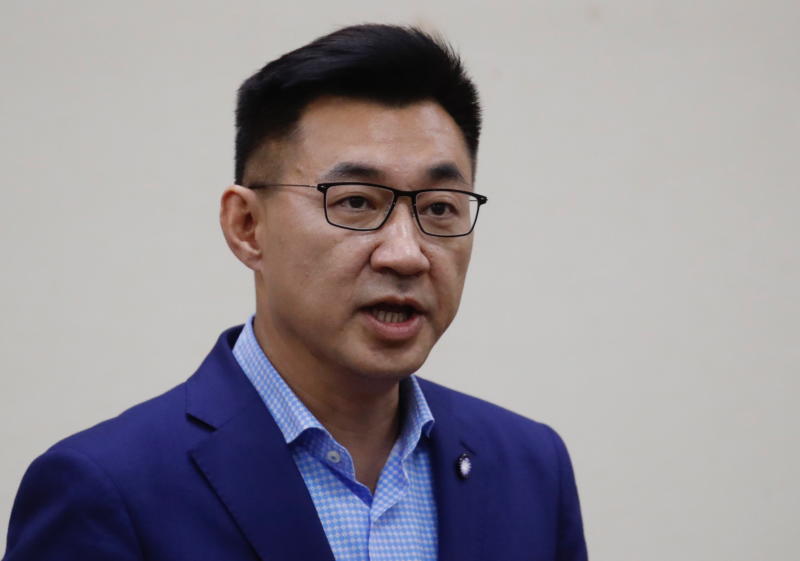Taiwan's pro-China KMT stakes future on young new leader
Sign up now: Get insights on Asia's fast-moving developments

At 48 years of age, Mr Chiang Chi-chen is the youngest permanent leader of the KMT in almost 100 years.
PHOTO: EPA-EFE
TAIPEI (BLOOMBERG) - Taiwan's Kuomintang has selected a reform-minded chairman to rebuild the beleaguered opposition party, a decision that could upend Beijing's decades-old framework for building ties with Taipei.
Lawmaker Chiang Chi-chen overcame the former mayor of Taipei City, Mr Hau Lung-bin, with more than 68 per cent of ballots cast by party members in Saturday's (March 7) vote.
At 48 years of age, Mr Chiang is the youngest permanent leader of the KMT in almost 100 years. In the wake the party's landslide election defeat in January, he has vowed a full "redesign", including rethinking the "92 consensus", the vague agreement that underpinned ties between the KMT and China.
"I'm going to work harder so that all party members can see change in the KMT and once again feel proud to be a member of the KMT," Mr Chiang said after the election at the party's headquarters in Taipei on Saturday.
Taiwanese President Tsai Ing-wen - who hails from the pro-independence Democratic Progressive Party - easily secured a second four-year term against the KMT's Mr Han Kuo-yu in part by making herself one of the Chinese Communist Party's most high-profile critics, a stance that appealed particularly to younger Taiwanese voters wary of China's goal of incorporating the island into the People's Republic.
China claims the island as part of its territory, while Taiwan's government sees itself as a sovereign, independent state.
January's electoral setback deepened the crisis facing the KMT, which favours eventual unification with China. The loss represented its fourth defeat in the six presidential elections since 2000. Prior to that, the party had governed Taiwan exclusively for the five decades after Chiang Kai-shek's Nationalists moved the Republic of China government to Taipei amid the Chinese civil war in 1949.
The party's finances are one of the most pressing issues facing its new chairman. Despite revenue of NT$430 million (S$19.8 million) in 2018, the KMT paid out NT$1.8 billion in personnel costs that year, NT$1.6 billion of which was for pensions for former employees, according to a January report by Associate Professor Lo Cheng-chung from the Graduate Institute of Financial and Economic Law at Southern Taiwan University of Science & Technology.
In addition to its finances, Dr Jonathan Sullivan, director of the University of Nottingham's China programs, says the KMT also needs to find a way to bring its China policy in line with public opinion while at the same time maintaining good relations with Beijing for the financial benefits it brings, and also to differentiate the party from Ms Tsai's DPP.
"China policy is one thing, finances another, differentiation from DPP and appealing to young people are all huge challenges," he said. "But even a severely flawed candidate like Han got five million votes and anyone writing off the KMT is a fool."


